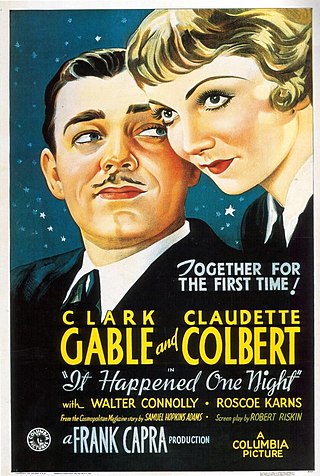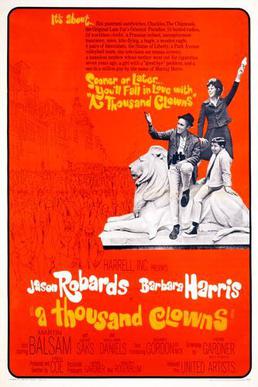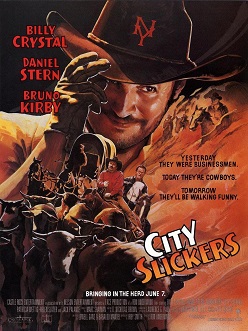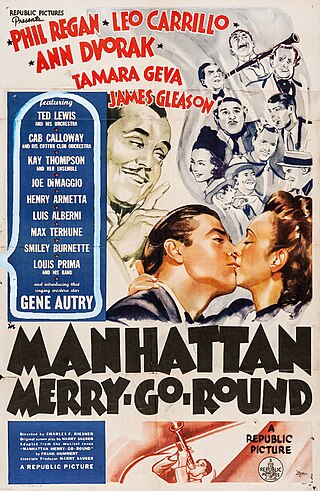The Academy Awards, commonly known as the Oscars, are awards for artistic and technical merit for the film industry. They are presented annually by the Academy of Motion Picture Arts and Sciences (AMPAS) in the United States in recognition of excellence in cinematic achievements as assessed by the Academy's voting membership. The Oscars are widely considered to be the most prestigious awards in the film industry.

It Happened One Night is a 1934 American pre-Code romantic comedy film with elements of screwball comedy directed and co-produced by Frank Capra, in collaboration with Harry Cohn, in which a pampered socialite tries to get out from under her father's thumb and falls in love with a roguish reporter. The screenplay by Robert Riskin is based on the August 1933 short story "Night Bus" by Samuel Hopkins Adams, which provided the shooting title. Classified as a "pre-Code" production, the film is among the last romantic comedies created before the MPPDA began rigidly enforcing the 1930 Motion Picture Production Code in July 1934. It Happened One Night was released just four months prior to that enforcement.

Billy Wilder was an Austrian-born filmmaker and screenwriter. He was born in Sucha Beskidzka, Poland, a town in Austria-Hungary at the time of his birth. His career in Hollywood spanned five decades, and he is regarded as one of the most brilliant and versatile filmmakers of Classic Hollywood cinema. He received seven Academy Awards, a BAFTA Award, the Cannes Film Festival's Palme d'Or and two Golden Globe Awards.

The Academy Award for Best Film Editing is one of the annual awards of the Academy of Motion Picture Arts and Sciences (AMPAS). Nominations for this award are closely correlated with the Academy Award for Best Picture. For 33 consecutive years, 1981 to 2013, every Best Picture winner had also been nominated for the Film Editing Oscar, and about two thirds of the Best Picture winners have also won for Film Editing. Only the principal, "above the line" editor(s) as listed in the film's credits are named on the award; additional editors, supervising editors, etc. are not currently eligible.

A Thousand Clowns is a 1965 American comedy-drama film directed by Fred Coe and starring Jason Robards, Barbara Harris, Martin Balsam, and Barry Gordon. An adaptation of a 1962 play by Herb Gardner, it tells the story of an eccentric comedy writer who is forced to conform to society to retain legal custody of his nephew.

Leslie Townes "Bob" Hope was a British-born American comedian, actor, entertainer and producer with a career that spanned nearly 80 years and achievements in vaudeville, network radio, television, and USO Tours. He appeared in more than 70 short and feature films, starring in 54. These included a series of seven Road to ... musical comedy films with Bing Crosby as his partner.

Twentieth Century is a 1934 American pre-Code screwball comedy film directed by Howard Hawks and starring John Barrymore, Carole Lombard, Walter Connolly, and Roscoe Karns. Much of the film is set on the 20th Century Limited train as it travels from Chicago to New York City. Ben Hecht and Charles MacArthur adapted their 1932 Broadway play of the same name—itself based on the unproduced play Napoleon of Broadway by Charles Bruce Millholland—with uncredited contributions from Gene Fowler and Preston Sturges.

City Slickers is a 1991 American Western comedy film directed by Ron Underwood and starring Billy Crystal, Daniel Stern, Bruno Kirby and Jack Palance, with supporting roles by Patricia Wettig, Helen Slater and Noble Willingham, and Jake Gyllenhaal making his acting debut.

Walter Andrew Brennan was an American actor and singer. He won the Academy Award for Best Supporting Actor for Come and Get It (1936), Kentucky (1938) and The Westerner (1940), making him one of only six actors to win three Academy Awards, and the only male or female actor to win three awards in the supporting actor category. Brennan was also nominated for his performance in Sergeant York (1941). Other noteworthy performances were in To Have and Have Not (1944), My Darling Clementine (1946), Red River (1948) and Rio Bravo (1959). On television, he starred in the sitcom The Real McCoys (1957-1963).

Walter Leland Catlett was an American actor and comedian. He made a career of playing excitable, meddlesome, temperamental, and officious blowhards.

Here Comes the Groom is a 1951 American musical romantic comedy film produced and directed by Frank Capra and starring Bing Crosby and Jane Wyman. Based on a story by Robert Riskin and Liam O'Brien, the film is about a foreign correspondent who has five days to win back his former fiancée, or he'll lose the orphans he adopted. Filmed from late November 1950 to January 29, 1951, the film was released in the United States by Paramount Pictures on September 20, 1951.
Battle for Life is a nature documentary series made from 1932 until 1934 by Horace Woodard and Stacy Woodard, The short films include the 1935 Oscar award-winning City of Wax, about honey bees. The one-reel short films were released by Educational Pictures. A homemade camera setup for closeups was used. The Woodards followed the series with another series titled Struggle to Live.
Casals Conducts: 1964 is a 1964 American short film directed by Larry Sturhahn. It is a documentary about the cellist and conductor Pablo Casals. It won an Oscar at the 37th Academy Awards in 1965 for Best Short Subject. The Academy Film Archive preserved Casals Conducts: 1964 in 2013.

So Much for So Little is a 1949 American animated short documentary film directed by Chuck Jones and Friz Freleng. In 1950, it won an Oscar at the 22nd Academy Awards for Documentary Short Subject, tying with A Chance to Live. It was created by Warner Bros. Cartoons for the United States Public Health Service. As a work of the United States Government, the film is in the public domain. The Academy Film Archive preserved So Much for So Little in 2005. Produced during the Harry S. Truman administration, it attained renewed relevance during the modern Medicare for All movement in the United States nearly seven decades later.
Mister Mugg is a 1933 short American pre-Code comedy film directed by James W. Horne. It was nominated for an Academy Award at the 6th Academy Awards in 1933 for Best Short Subject (Comedy). The Academy Film Archive preserved Mister Mugg in 2012.
A Preferred List is a 1933 American Pre-Code short comedy film produced by Lou Brock. At the 6th Academy Awards, held in 1933, it was nominated for an Academy Award for Best Short Subject (Comedy).
What, No Men? is a 1934 American short comedy film directed by Ralph Staub and starring El Brendel, Wini Shaw, and Phil Regan. It was filmed in Technicolor. In 1934, it was nominated for an Academy Award for Best Short Subject (Comedy) at the 7th Academy Awards.
Double or Nothing is a 1936 American short musical comedy film directed by Joseph Henabery. It was nominated for an Academy Award at the 9th Academy Awards in 1936 for Best Short Subject (Two-Reel). The Academy Film Archive preserved Double or Nothing in 2013.

Walter Wanger's Vogues of 1938 is a 1937 musical comedy film produced by Walter Wanger and distributed by United Artists. It was directed by Irving Cummings, written by Bella and Sam Spewack, and starred Warner Baxter and Joan Bennett. It was filmed in New York City in Technicolor.

Manhattan Merry-Go-Round is a 1937 American comedy film directed by Charles Reisner and starring Phil Regan,Leo Carrillo and Ann Dvorak. It was produced and distributed by Republic Pictures. It was nominated for an Academy Award for Best Art Direction by John Victor Mackay.













